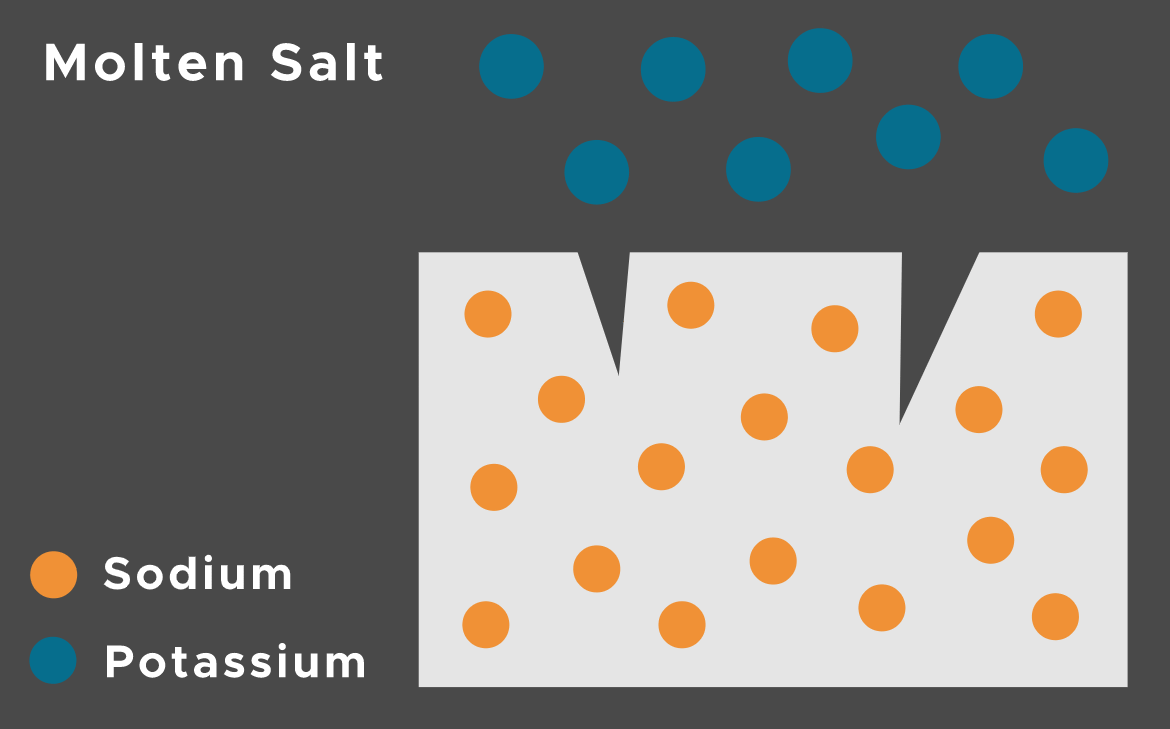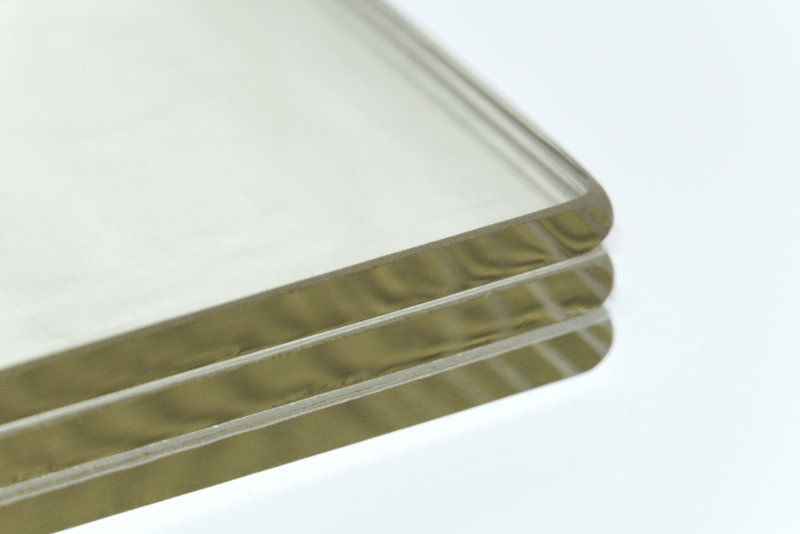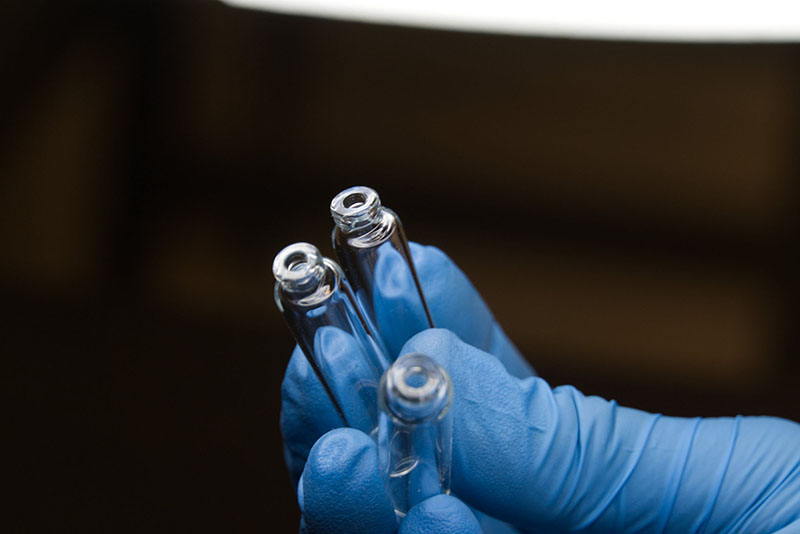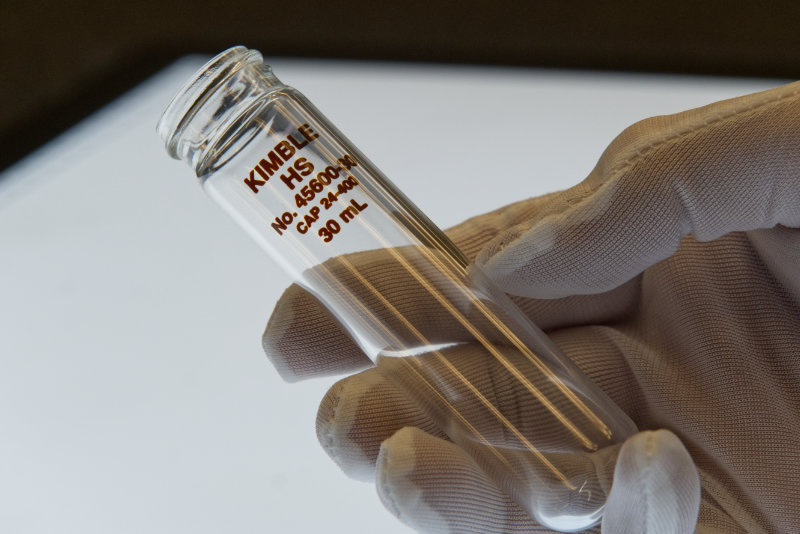
Chemically Strengthened Borosilicate Glass for COVID-19 Vaccine
Read More About Sumo™Glass Chemical Strengthening Experts
Science • Technology • Experience
Our strengthening processes using an alkali ion exchange mechanism dramatically increase fracture strength, fatigue resistance, thermal shock resistance, and abrasion resistance. We specialize in borosilicate, aluminosilicate, and soda-lime silicate glass strengthening and offer strengthening processes for various other compositions, such as optical glasses. The glass experts at Saxon may be able to provide 50 to 800% increases in design strength using your current glass compositions.
Fracture Strength
Glass breaks when tensile stress acting on surface flaws exceeds theoretical strength of the glass at the tip of a flaw. The ion exchange process generates a high magnitude of surface compression which must be overcome by the applied tension to create a fracture.
Fatigue Resistance
The compressive forces reduce the velocity of existing subcritical flaws from propagating under the action of a given applied load even in a corrosive environment. Even with cycling load on and off, the flaw dimensions remain relatively constant, thus the fatigue resistance of glass increases.
Thermal Shock Resistance
A larger magnitude of temperature difference across the wall of a glass product needs to be given to overcome the added compression, thus improving the material's resistance to thermal shock.
Abrasion Resistance
The surface compression generated by the ion exchange process significantly increases the glass's resistance to surface damage from abrasion, scratching, and handling during manufacturing and use.
Process Overview
What occurs during chemical strengthening?
- › Smaller host sodium ions on the glass surface are replaced by larger potassium ions, therefore forcing it into compression.
- › This creates closure stress on cracks, thereby reducing the chance of crack propagation.
- › Furthermore, the surface compression all but eliminates problems of "delayed failure"; i.e. time-dependent weakening under load and increases abrasion resistance.
- › The ion exchange process is carried out at temperatures below the glass transition temperature while the glass is still nearly solid.

Our Products & Services
Our strengthening techniques have provided consistent and timely results to the pharmaceutical industry for over 25 years.

Sumo™
Product Offering
Chemically strengthened glass medical vials with 75% crush-strength increase.

Ion-Armor™
Product Offering
Laminated glass panels for ballistic protection with 1 GPa rupture modulus.

Ionex®
Process Offering
Glass strengthening process providing 50-800% strength increase.

Ion-Klad®
Process Offering
Deeper case-depth strengthening for centrifuge tubes and specialty glass.

Frankenstein™
Process Offering
Electric field-assisted ion exchange achieving 800-900 MPa compressive stress.
Get In Touch
Have a question about our glass strengthening services? Contact us today.